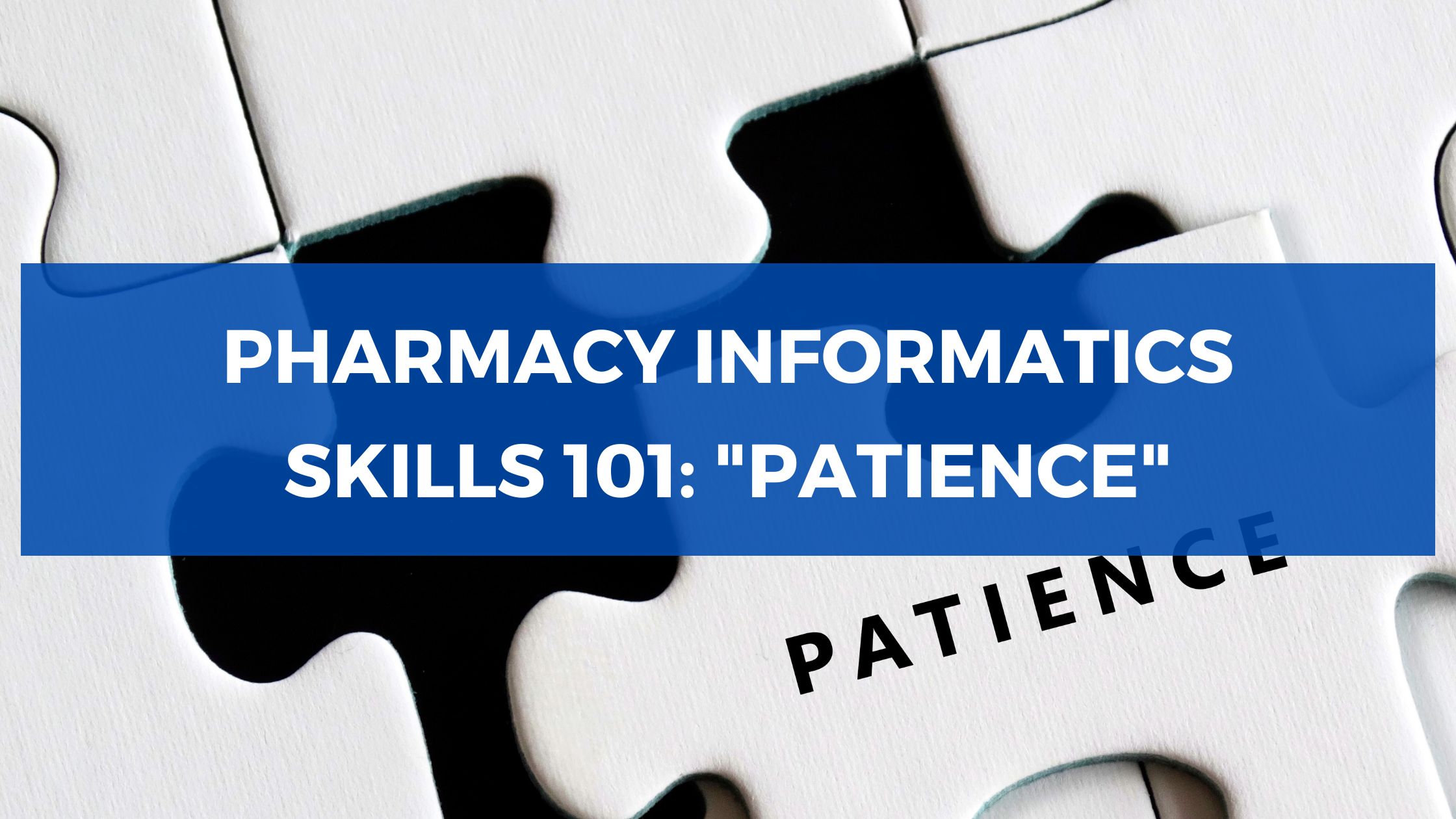Pharmacy Informatics Skills 101: “Patience”
Being a pharmacy informatics professional means you’ll be working with pharmacy technology, operational improvement, and implementations. However, that’s just one side of it. Another aspect that will be deeply rooted in everything you do is working with different professionals in a team setting, often times with different types of people and different perspectives. For that, patience is one of the most important pharmacy informatics skills you can have when working in the field.
Patience with the Process
Working in informatics means working with the best practices of ITIL in mind. This means there’s a lot of additional documentation pieces that you may not be used to if you are coming from a non-IT background. The ITIL framework can be its own topic of discussion, so I won’t go into detail about it here but just mention some key aspects.
- Knowledge Management and developing referential documents are time consuming but are worth having for future efficiencies and troubleshooting
- Following and updating policies in a frequent manner helps with keeping everyone consistent in how they are providing IT services to the customer (end users)
- Even though it will take time, learning the steps and processes recommended in ITIL will allow better use of the tools available to ensure satisfaction in services rendered
The takeaway of this is that there is going to be an initial uphill battle and learning curve, but being patient with the process is a pharmacy informatics skill that will help immensely as you master the concepts.
Patience with the Governance
Healthcare systems and healthcare workflows are often long and complicated since there’s lots of clinical and operational aspects to consider. Depending on the organization, there may be a lot of governance that occurs when a new informatics request comes through. For example, if a request for a new order set is placed, the process could go as follows:
Request –> Workshopping –> Testing and Validation –> Stakeholder Approval –> Department Approval –> P&T Approval –> Change Committee Approval –> Implement –> Post-Implementation Validation and Monitoring
Just looking at this sample flow, you can see that there are many steps in which a request must pass in order to finally be implemented in the system. What does that mean? This means you might be waiting a very long time between steps before it completes. Being patient and understanding with the process will prevent you from stressing out too much, since there is only so much you can control.
Patience with Others

Source: https://www.flickr.com/photos/x1brett/51134208704
Depending on what your responsibilities are, you will be working with a large variety of individuals from all different backgrounds.
Working with End Users
End users, the individuals using the EHR and trying to do their clinical work day in day out, can be demanding when they encounter issues in the system. This may cause some misunderstandings or anger to develop from the pharmacy informatics end, but you have to remember that end users have a different primary responsibility than pharmacy informatics personnel. End users are trying to use the system as a supplement to their primary goal, which is providing patient care right then right there. From our perspectives in the pharmacy informatics space, we’re providing tools necessary for them to provide the care, but if there’s an issue that affects the way they provide care in a timely manner, they will push for a fix as soon as possible. Engaging a dialog with them and listening to their complaints can go a long ways in terms of having them heard, and being patient with them can help with managing their expectations.
Working with Other Departments
When working with professionals in other departments, thinking about their perspectives is also very important. We as pharmacists have a unique viewpoint where we can see where medications start and end, but we aren’t going to be the expertise in things like registration, lab, or appointments. Likewise, we shouldn’t expect lab informatics, person management teams, or schedulers to understand what the pharmacy workflow is like. Interdepartmental teams tend to have a challenge in working harmoniously due to the differing perspectives, but being patient with one another and allowing the perspectives to create discussion and critical thinking will allow better opportunities for success. Learning from one another will be key to positive outcomes.

